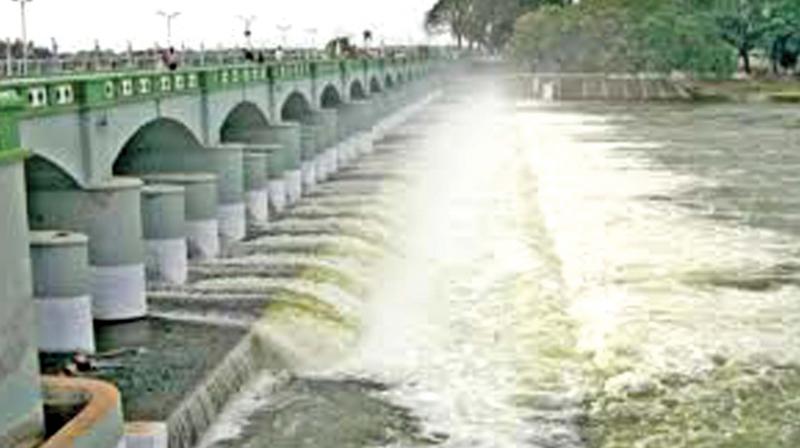Light at end of tunnel on Cauvery in top court order
Both Karnataka and Kerala objected to this and said the States cannot be compelled, as it would amount to interference with State's rights.

New Delhi: In a significant order which will bring the curtains down in the long pending Cauvery water dispute, the Supreme Court on Friday directed the Centre to notify in Gazette the constitution of the 10-member Cauvery Water Management Authority and give effect to the Authority with promptitude before the onset of the South West Monsoon.
Disposing of a contempt petition filed by Tamil Nadu, a three judge Bench of Chief Justice Dipak Misra and Justices A.M. Kanwilkar and D.Y. Chandrachud in its order noted that there is distress situation in the State of Tamil Nadu due to scarcity of water, which can be remedied to some extent by the effective implementation of the scheme.
The court accepted the assurance given on behalf of the Centre that the ‘draft scheme’ for implementation of the February 16 judgment on distribution and apportionment of water to the four riparian States of Karnataka, Kerala, Tamil Nadu and Puducherry will be taken to its logical end with utmost dispatch.
As per the provisions of the scheme the States are to furnish/place an indent to the Authority for the supplies required by them on each reservoir site. Both Karnataka and Kerala objected to this and said the States cannot be compelled, as it would amount to interference with State’s rights. Further they said it is wholly unnecessary as the Award passed by the Tribunal quantifies the volume of river water to be shared and apportioned between the States.
Rejecting the submission, the Bench said, “Suggestions/objections of the State of Karnataka and State of Kerala are devoid of merit. This objection does not commend us inasmuch as the necessity to furnish/place an indent of water demand and about the total water reservoir is to work out the quantity of river water to be released during the relevant period in consonance with the proportion specified in the Award as modified by this Court. That is to further the rights of the States/U.T. for just and reasonable use of water from the allocable water on equitable basis and not to impinge upon their rights and more so for smooth and effective implementation of the Award as modified by this Court.”
The court agreed with the Centre’s submission that the dispensation envisioned in the concerned clauses in the ‘scheme’ is essentially to ensure smooth and effective implementation of the scheme. It said the implementation of the scheme would be strictly in accordance with the distribution of water to the respective States/U.T. in consonance with the Award of the Tribunal as modified by this Court.
The court said the fact that the subject of water, that is to say, water supplies, irrigation and canals, drainage and embankments, water storage and water power, forms part of Entry 17 of List II of the Seventh Schedule to the Constitution (State subjects), cannot be the basis to whittle down the efficacy of the Award passed by the Tribunal and, in particular, the scheme to ensure smooth, effective and efficient implementation of this court’s order.
The Bench pointed out that the 'draft scheme’ has been formulated singularly for that purpose and the same will have to be taken forward to its logical end in accordance with law with promptitude. “Needless to observe, we cannot allow the parties to reopen the issues already settled in the Award and as modified by this Court, indirectly in the guise of questioning the appropriateness of clause 9(3)(iii) in the draft scheme (relating to making indents to the Authority).
The Bench made it clear that the Authority constituted under the scheme will be bound by the contours regarding apportionment of river water in terms of the Award as modified by this Court and while doing so, is expected to take into account all factors that may be relevant at the given point of time, including to identify the situation of distress in the basin caused due to identifiable factors before quantifying the water quantity for being released or allotted to the party States/U.T. for the relevant period.
The Bench appreciated the stand taken by Mr. Nambiar, senior counsel appearing for Union Territory of Puducherry, that the Authority cannot be expected to issue directions mechanically and that the Authority must have complete power to enforce its directions so as to comply with the Award, as modified by this Court, in its letter and spirit, concerning the apportionment of water between the party States/U.T.

